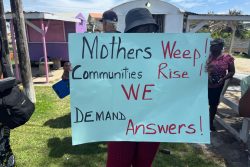LONDON (Reuters) – British Prime Minister Gordon Brown was set to announce today a May 6 parliamentary election which could bring down the curtain on 13 years of rule by his centre-left Labour Party.
Brown will meet Queen Elizabeth today to request a dissolution of parliament, a Labour party source said, a formality which will mark the start of a month-long campaign for one of the most unpredictable elections in Britain for almost two decades.
The opposition Conservatives lead Labour in opinion polls but the gap has been narrowing. An ICM poll in today’s Guardian newspaper showed Labour only four points behind the Conservatives and on course to remain the largest party, albeit without an overall majority.
Support for the Conservatives is unevenly distributed in Britain’s 650 parliamentary constituencies, meaning Labour can win the most seats even if it does not capture the largest share of the vote nationally.
An inconclusive election result is rare in Britain and is the nightmare scenario for financial markets, which want a clear outcome and the promise of meaningful action to tackle a budget deficit running at almost 12 percent of GDP.
Failure by either of the main parties to win a majority could hand a pivotal role to the smaller opposition Liberal Democrats, who will be trying to maintain a bloc of around 60 MPs in parliament.
How best to run an economy slowly emerging from the worst recession since World War Two is likely to be the central theme in the campaign, entwined with issues such as how best to manage public services in straitened times.









